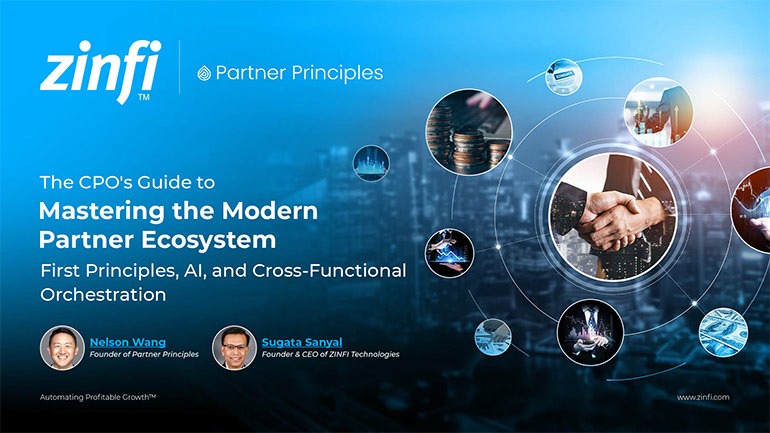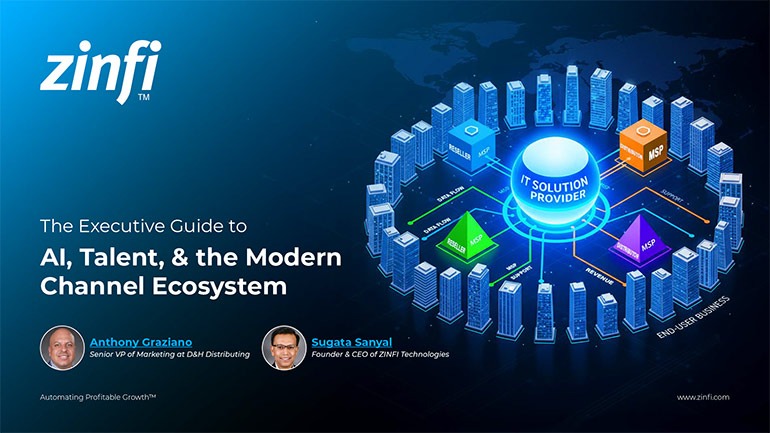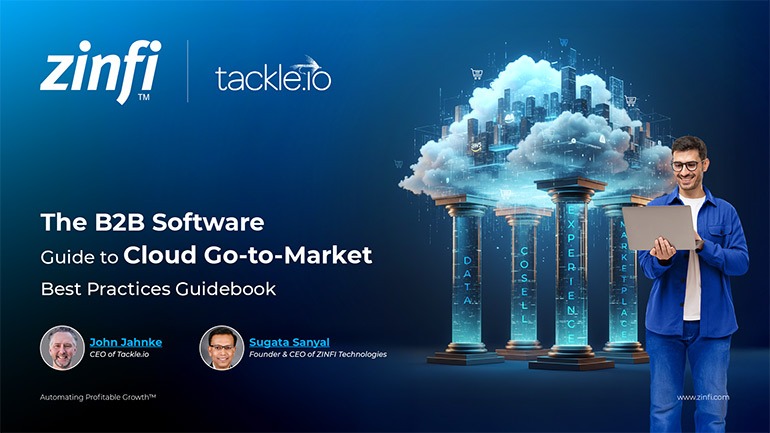The primary focus of Sophisticated Discovery is moving beyond surface-level challenges to uncover must-solve problems that have a measurable, monetary impact on the customer’s business. This deep analysis ensures the proposed solution remains a top priority amid competing operational initiatives.
Best Practices Articles

Channel Sales: Essential Tactical Skills for Modern Growth
Channel Sales success involves vendor organizations enabling external partners to master modern B2B tactical skills, including sophisticated discovery, multi-threading, and robust business case construction. This strategic focus is essential because today's complex buying teams require partners to articulate the clear financial impact and Return on Investment (ROI) of the solution to secure high-level approval, even for deals exceeding $60,000.
- Who is this for? Channel Partners, Partner Sales Managers, Partner Managers, and Chief Partner Officers.
- Core Problem Solved: Preventing deals from getting stalled or lost by equipping partners to navigate large, complex buying teams and prove quantifiable financial value.
- Key Tech/Entities: Sophisticated Discovery, Multi-threading, and Robust Business Case Construction (including calculated ROI).
Channel sales now demand advanced tactical skills due to evolving buyer behavior and increased caution. Sellers must master sophisticated discovery to uncover critical customer problems with monetary impact. Multi-threading and consensus-building are essential to navigate complex buying teams and gain widespread agreement. Finally, robust business case construction is crucial to demonstrate clear financial value and justify investment. These skills are vital for channel partners to secure deals and drive growth.
Key Takeaways:
- Selling today requires new, sharp skills.
- Buyers are more careful and involve more people.
- Sophisticated discovery: Find urgent, costly customer problems.
- Multi-threading: Engage many contacts within a company.
- Consensus building: Get everyone on the buying team to agree.
- Robust business cases: Show clear monetary value and ROI.
- Channel partners must be trained in these skills.
- Mastering these skills drives channel sales growth.
Channel sales require sharp skills today. Selling has changed a lot. It is much harder to close deals now. Buyers are more careful. They also have many more people involved in their buying choices. This means sellers need new, clear skills. Old ways of selling do not work well. Sellers must learn how to find customer needs deeply. They must talk to many people in a company. They must also show how their product truly helps the customer's business. These are not simple tasks. They need careful thought and practice. For channel sales professionals, this means teaching these skills to their partners. Partners are the ones who sell the product. If partners have strong skills, channel sales grow stronger.
The shift in how people buy affects everyone in sales. It involves direct sales teams. It also affects channel sales teams. Companies now spend money very carefully. Every purchase gets a close look. This means sellers cannot just offer a product. They must show real value. They must show how the product solves big problems. They must also show how it saves money or makes money. This is very true for channel sales. Partners need to learn these skills, too. They are on the front lines. They meet the customers every day. If partners do not have these skills, deals can fall apart. So, training partners in these core skills is a top job for channel sales leaders.
This article will explain three key skills. First, we will cover sophisticated discovery. This means finding the real, urgent problems customers face. Second, we will look at multi-threading and building agreement. This helps sellers talk to all the right people in a big company. Third, we will discuss building strong business cases. These help customers see the monetary value of a product. Mastering these skills is vital for anyone selling today. It is even more essential for channel sales success. We will show how these tactical skills help partner ecosystems thrive. They make partner relationship management more effective. They lead to better co-selling results.
Sophisticated Discovery for Channel Sales Success
Channel sales need brilliant discovery today. Discovery means asking questions to understand the customer. In the past, sellers just found general problems. They thought showing a problem was enough. But today's market is different. Customers are very busy. Leaders have little time. They only care about significant issues. These are problems that cause real pain. They are "must-solve" problems. If a problem is only "nice to solve," leaders quickly forget it. They have many other urgent tasks. So, sellers must find these big problems. They must find the ones that truly keep leaders worried.
Sellers must ask more profound questions. They need to go beyond the surface. They cannot just ask, "What are your challenges?" This is too general. Instead, they must ask, "What specific outcomes are you missing?" Or "How does this problem affect your company's revenue?" They must understand the financial impact. They must know how the problem affects the customer's goals. This detailed discovery ensures the product stays essential. It remains a top item on the customer's list. For channel sales, this means teaching partners how to do this. Partners often have quick talks. They need to learn how to slow down. They need to ask the right, probing questions.
Imagine a seller offering new software. The old discovery might find that a customer's system is slow. Discovery would dig deeper. It would ask: "How much money does that slowness cost your company monthly?" "What is the impact on customer satisfaction when the system is slow?" "How many hours do your employees lose each week because of this issue?" These questions show real pain. They show a monetary cost. They make the problem urgent. This makes the product a "must-have." This is how partners in channel sales must operate. They must find the "must-solve" pains.
Partners must also learn to tie problems to high-level goals. A problem is not just a problem. It affects big company plans. For example, if software is slow, it might stop a company from reaching its growth goals. Or it might hurt customer loyalty. Partners need to ask about these bigger impacts. They need to connect the dots. This makes the solution much more critical. It moves the discussion from simple features to business outcomes. This is key for partner enablement. It helps partners prove the worth of the product. They can then show why the product is worth the money. This focused way of finding needs is vital for winning deals in channel sales. It helps customers see the actual value.
Multi-threading and Building Consensus in Channel Sales
Channel sales professionals must master multi-threading. This means talking to many people in a customer company. It is no longer enough to have just one contact. Buying teams are now larger. They are also more careful. If a seller only talks to one person, the deal is risky. That one person might leave. Or their focus might change. Then, the deal can die. So, sellers must connect with many people. They need to build a network inside the customer's company. This includes people from different levels. It includes people from various departments. This makes the deal safer.
Building consensus is also very important. Consensus means everyone agrees. With many people on a buying team, agreement is hard to get. Each person has different needs. Each person has other worries. The seller must understand all these different views. They must show how the product helps each person. They must bring everyone to the same page. This takes skill. It needs emotional intelligence. A seller cannot just ask, "Who is your boss?" This sounds rude. Instead, they must ask, "Who else does this problem affect?" Or, "How does this problem impact other teams?" This gets more people involved without being pushy. This is a skill channel sales partners must learn.
Download our guidebook The Modern Partner Ecosystem: Blueprint for Revenue Leadership Best Practices to know more about how EQ and AI combine to transform leadership, operations, and growth in today’s partner-led, marketplace-driven ecosystem.
Consider this example for channel sales: A partner talks to a project manager. The project manager loves the product. They think it will solve many problems. But the partner knows a CFO must approve. The partner also knows the IT department will have questions. The partner must get to these people. They must understand their worries. They must show them how the product helps. For the CFO, it might be about cost savings. For IT, it might be about security. The partner must tailor their message for each person. This builds agreement across the company. It makes the deal much stronger. This often involves co-selling with the vendor's direct sales team. Together, they can reach more people.
Psychological principles also help with multi-threading. Robert Cialdini talks about "commitment and consistency." If someone agrees to something small, they are more likely to agree to something bigger later. A seller can use this. They can ask a contact, "Tell me how this problem impacts your CEO." The contact talks about it. They "commit" to the idea that the CEO cares. Then, the seller can ask, "Does it make sense to involve your CEO?" It is easier for the contact to say yes. They already agreed the CEO is affected. This method helps channel sales partners open doors to new contacts. It helps them build a wider network. This makes partner relationship management more effective. It secures deals in complex buying environments.
Robust Business Case Construction for Channel Sales
Channel sales demand strong business cases. A business case shows the monetary value of a product. It shows how the product helps a customer make or save money. It goes beyond features. It proves a real return on investment. In today's market, deals get close checks. Companies are careful with their money. They need clear proof that an investment is wise. So, sellers must build detailed business cases. They must show them to their customer's internal champion. The champion uses this case to "sell" the product inside the company. This is especially true for mid-market and enterprise deals.
A few years ago, a company might just spend $60,000 without much fuss. Today, even a $60,000 deal can need a full presentation to senior leaders. A CFO might need to approve it. So, the seller's job is to give the champion all the tools. They need to make the champion look good. The business case is that tool. It has precise numbers. It shows the money gains. It shows how the product solves big problems. This helps the champion convince their leaders. For channel sales partners, this skill is vital. They must be able to create these cases. Or, they must know how to use cases provided by the vendor. This is a key part of partner enablement.
Here is what a strong business case for channel sales might include:
- Quantified Problem: It starts by putting a number on the customer's problem. "Your current process loses $X per month."
- Solution Impact: It clearly shows how the product fixes this problem. It shows how it saves $X or generates $Y.
- Return on Investment (ROI): It calculates how quickly the customer will earn back their investment. "You will see full ROI within 6 months."
- Risk Mitigation: It explains how the product lowers risks for the customer. For example, "It reduces security risks by 50%."
- Strategic Alignment: It shows how the product helps customers reach bigger company goals. "This helps you achieve your digital transformation goals."
Partners in channel sales must understand how to gather this information. They must know how to present it. They might work with the vendor's sales engineers to build the case. They might use templates provided as part of partner enablement. The goal is to make it easy for the champion. The champion needs to present a clear, strong argument to their leadership. This prevents deals from getting stuck. It helps deals close faster. It strengthens the management of the partner relationship between vendor and partner. This focus on strong business cases makes channel sales much more effective. It moves the conversation from price to value. It helps partners avoid having to offer significant discounts.
Conclusion
Channel sales success in today's market needs sharp new skills. Selling has changed. It is no longer a simple task. Buyers are more careful. Many more people now make buying decisions. This means sellers must be much smarter. They must learn how to find customer needs deeply. They must talk to many different people inside a customer's company. They must also show how their product brings clear money value. These are core skills for any salesperson. They are even more vital for channel sales professionals.
Sophisticated discovery is the first key skill. Sellers must find the real, urgent problems customers face. They must go beyond simple issues. They must discover "must-solve" problems. These are the ones that truly cost customers money or hurt their big goals. Partners in channel sales must learn to ask deep questions. They must connect problems to financial impact. This makes the product a clear solution, not just a nice-to-have.
Multi-threading and building consensus come next. Sellers cannot rely on just one contact anymore. They must talk to many people in a customer company. They must understand everyone's needs. They must build agreement across different teams. This needs smart communication. It helps deals move forward. It stops them from getting stuck. Channel sales partners must learn these methods. They often work with vendor teams in co-selling efforts to do this well. This ensures all voices are heard.
Finally, robust business case construction is crucial. Sellers must build cases that show clear money value. These cases prove how a product saves money or makes money. They help the customer's internal champion sell the product to their leaders. Partners need to know how to create or use these cases. This is a vital part of partner enablement. It helps partners avoid price talks. It lets them focus on value.
Mastering these tactical skills is not optional. It is a must for sales success. This is especially true for channel sales. When partners have these skills, they sell more effectively. They build stronger customer relationships. This leads to bigger wins for the whole partner ecosystem. These skills make partner relationship management stronger. They drive growth and keep channel sales ahead in a challenging market.
Watch this podcast with Chris Orlob and Sugata Sanyal to gain valuable insights into adapting strategies, mastering new skills, and thriving in this evolving market.
Frequently Asked Questions
Multi-threading accelerates deal closure by reducing dependency on a single contact and engaging multiple stakeholders such as IT leaders, CFOs, and project managers. This approach builds cross-functional consensus and prevents deals from stalling due to internal role changes or shifting priorities.
With organizations exercising increased caution around capital investments, Robust Business Case Construction has become essential. A strong business case provides clear financial justification, quantifies Return on Investment (ROI), and equips internal champions with the evidence needed to secure executive approval.
The three essential tactical skills are Sophisticated Discovery to identify high-impact business problems, Multi-threading and Consensus-Building to navigate complex buying committees, and Robust Business Case Construction to clearly justify financial investment and value.
Yes. In modern, high-value Channel Sales deals, relying on a single champion introduces significant risk. Consensus-building through multi-threading allows partners to address the concerns of all key decision-makers, ensuring broad organizational alignment and significantly improving deal success rates.
Best Practices Guides
 First Principles Drive Modern Partner Ecosystem Success Best Practices
First Principles Drive Modern Partner Ecosystem Success Best PracticesDownload for FREE
 The Future of Managed Service Providers: Navigating the Age of AI and Automation
The Future of Managed Service Providers: Navigating the Age of AI and AutomationDownload for FREE
 Modernizing Channel Marketing: AI and Ecosystem Enablement Best Practices
Modernizing Channel Marketing: AI and Ecosystem Enablement Best PracticesDownload for FREE
 The Channel’s Shift to Partner-Led With AI Best Practices
The Channel’s Shift to Partner-Led With AI Best PracticesDownload for FREE
 Hyperscalers, ISVs, and AI: Shaping the Future of B2B Software Distribution
Hyperscalers, ISVs, and AI: Shaping the Future of B2B Software DistributionDownload for FREE
 Definitive Guide to a Partner Ecosystem-First Sales Strategy
Definitive Guide to a Partner Ecosystem-First Sales StrategyDownload for FREE
 The Partner-Led Digital and AI Transformation Best Practices
The Partner-Led Digital and AI Transformation Best PracticesDownload for FREE
 Startup Talent Recruitment: Hiring Missionaries, Not Mercenaries
Startup Talent Recruitment: Hiring Missionaries, Not MercenariesDownload for FREE
 The Future of Partner Relationship Management with AI in Partnerships
The Future of Partner Relationship Management with AI in PartnershipsDownload for FREE
 Cybersecurity for the 99%: Strategies from the Frontline
Cybersecurity for the 99%: Strategies from the FrontlineDownload for FREE
 Mastering Partner Relationships: A Strategic Approach to Business Growth
Mastering Partner Relationships: A Strategic Approach to Business GrowthDownload for FREE
 Mastering Partner Relationship Management: Keys to SaaS Channel Success
Mastering Partner Relationship Management: Keys to SaaS Channel SuccessDownload for FREE